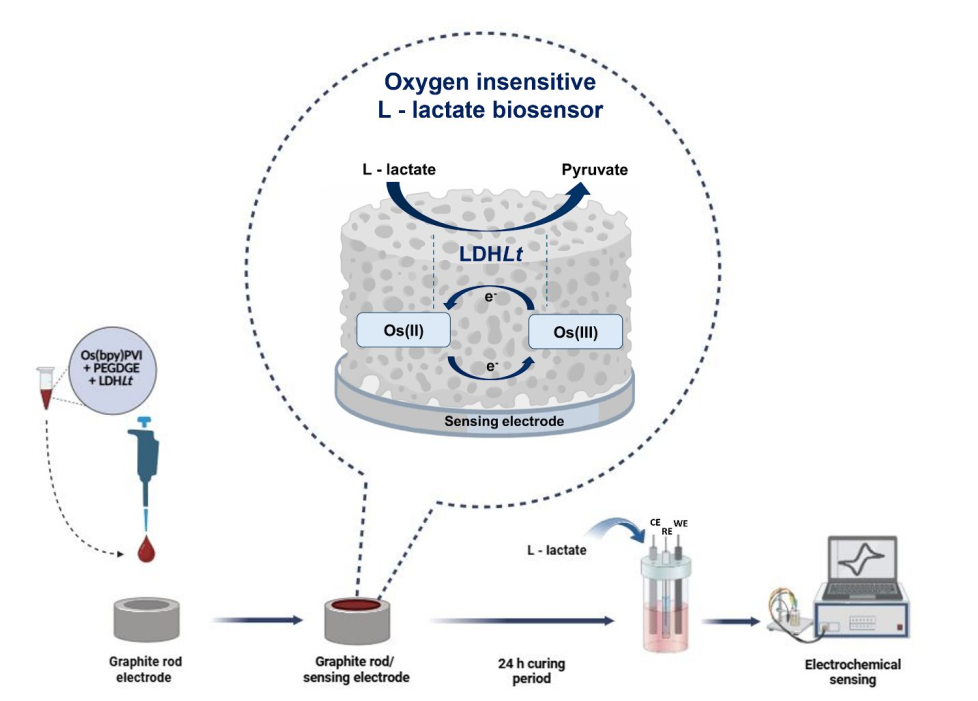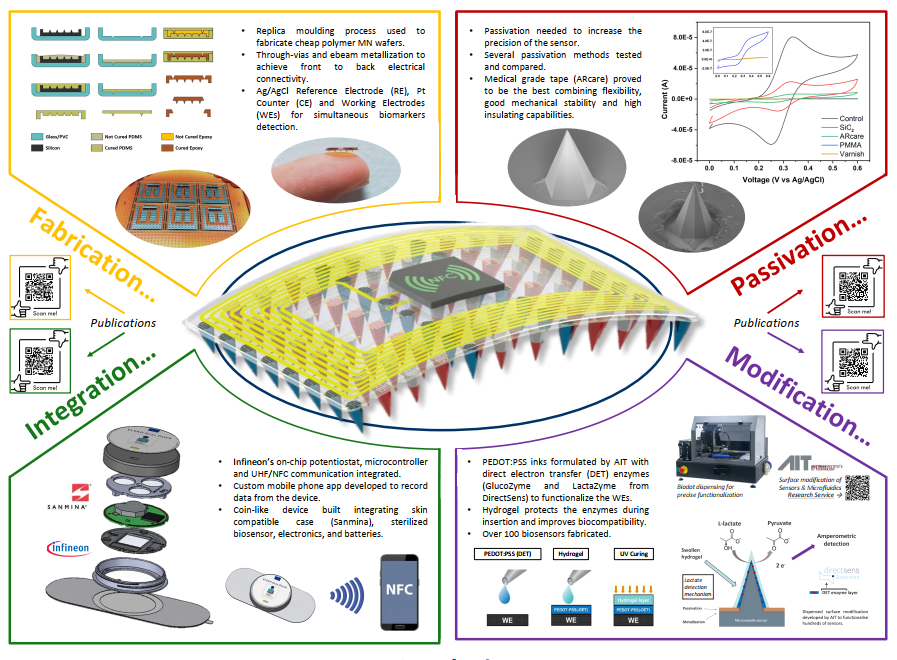Enzymes: Nature's Biological Catalysts
Imagine if you had a tiny superhero living inside you, tirelessly working around the clock to keep your body functioning smoothly. Well, guess what? You do! These superheroes are called enzymes, and they play a crucial role in just about every biological process that keeps us alive. Today, we’re going to dive into the fascinating world of enzymes, explore their importance, and discover how they help detect lactate—a key player in our metabolism.
So, let’s get started!
Understanding Enzymes
Enzymes are like the unsung chefs of the biological world. They speed up chemical reactions, making sure everything happens at just the right pace. Without enzymes, many of these reactions would be slower than a snail in molasses, and life as we know it wouldn’t be possible. Structurally, enzymes are proteins with a specific shape that includes an “active site”—the special region where the magic happens. This active site is like a keyhole, and only specific “keys” (substrates) can fit, which is why enzymes are so picky about the reactions they catalyze.
Classification and Functions
Enzymes aren’t a one-trick pony—they come in different types, each with its own superpower. The major classes include:
- Oxidoreductases: These enzymes handle oxidation-reduction reactions, like turning one molecule into another by adding or removing electrons.
- Transferases: They’re like molecular mailmen, transferring functional groups between molecules.
- Hydrolases: Think of these as the molecular janitors, breaking down molecules by adding water.
And that’s just scratching the surface! Enzymes are everywhere—from helping us digest food to enabling cutting-edge medical diagnostics.
Factors Influencing Enzyme Activity
Like any good superhero, enzymes have their kryptonite. Temperature, pH, and substrate concentration can all affect how well an enzyme does its job. Too hot or too acidic, and the enzyme might lose its shape, becoming useless. There’s also the matter of enzyme inhibition, where other molecules sneak in and block the active site or mess with the enzyme’s function. Understanding these factors is crucial, especially in medical and industrial settings where enzymes are put to work.
The Significance of Lactate in the Human Body
Lactate often gets a bad rap, especially among athletes, who sometimes blame it for muscle soreness. But lactate is actually a helpful molecule produced during anaerobic respiration—when our cells need energy fast and there’s not enough oxygen to go around. Instead of being the villain, lactate helps to keep our energy levels up during intense exercise. Plus, the idea that lactic acid causes muscle soreness? Total myth! Your body actually clears lactate pretty quickly once you catch your breath.
Indicator of Athletic Performance
For athletes, the lactate threshold is like the check-engine light for your body. It’s the point during exercise when lactate starts to accumulate faster than your body can clear it, signaling that you’re pushing your limits. Monitoring lactate levels can help athletes optimize their training, improve endurance, and avoid burnout. It’s like having a personal coach inside your muscles, telling you when to push harder and when to ease up.
Clinical Relevance of Lactate: Beyond Sports
Lactate isn’t just important for athletes. In medicine, elevated lactate levels can indicate serious health issues like lactic acidosis, sepsis, or other metabolic disorders. Doctors monitor lactate levels to assess a patient’s condition, making lactate a crucial biomarker in critical care.
The Role of Lactate Dehydrogenase (LDH) in Lactate Detection
Enter Lactate Dehydrogenase (LDH), the enzyme hero responsible for converting lactate into pyruvate, another key molecule in energy production. LDH is like a molecular detective in biochemical assays, helping scientists measure lactate levels with precision. This enzyme is so important that it’s used in clinical diagnostics to detect tissue damage and disease.
Enzymatic Biosensors for Lactate Detection
Enzymatic biosensors are like the sniffer dogs of the molecular world. These devices use enzymes like lactate oxidase to detect lactate levels with incredible accuracy. Unlike traditional methods, enzyme-based biosensors are faster, more sensitive, and can even be used in portable devices—making them a game-changer in both sports and healthcare.
Innovations in Enzyme-Based Lactate Detection
Innovation never sleeps! The latest advancements in enzyme technology have led to portable lactate meters, which are now a staple for athletes and healthcare providers alike. And the future looks even brighter, with ongoing research focused on making these tools even more precise and accessible.
Enzyme Functionality in Health Monitoring and Disease Prevention
Enzyme-Based Diagnostic Tools in Healthcare
Enzyme-based diagnostic tools are transforming healthcare, particularly in detecting metabolic disorders. For example, enzymes are used to monitor conditions like diabetes, where they help measure glucose levels. There are even home test kits that allow you to keep an eye on your health from the comfort of your living room—talk about convenience! One of the key advantages of using enzymes in diagnostics is the ability to create additive-free solutions. We explore this concept further in our article The Benefits of Using Additive-Free Enzyme Solutions in Diagnostics, which highlights how this approach can enhance test accuracy and reliability.
Preventive Healthcare: The Role of Enzymes in Early Detection
Prevention is better than cure, and enzymes are at the forefront of this approach. Regular enzyme-based testing can catch health issues before they become serious, offering a powerful tool for maintaining long-term health. Ongoing research is looking into how we can use enzymes to develop new preventive healthcare strategies that are both effective and easy to use.
Enzyme-Assisted Therapies: Beyond Detection
Enzymes aren’t just for detection—they’re also being used in therapies. Enzyme replacement therapies are a lifeline for people with enzyme deficiency disorders, while other therapies are exploring how enzymes can help treat conditions like cystic fibrosis and lysosomal storage diseases. The potential of enzyme-based therapies in personalized medicine is truly exciting.
Enzymes in Environmental Sustainability
Enzymes are also doing their part to save the planet! They play a key role in environmental monitoring, pollution control, and even sustainable industrial processes like biofuel production. Enzyme-based biosensors can detect pollutants in water, helping to ensure that our environment stays clean and safe.
The Role of Enzymes in Biotechnology and Industry
In industry, enzymes are driving innovations across the board—from food processing to pharmaceuticals and textiles. They’re even being used in synthetic biology to create new products and processes that were once the stuff of science fiction.
The Future of Enzyme Research and Development
The future of enzyme research is bright, with exciting developments in enzyme engineering and artificial enzymes. These innovations could lead to breakthroughs in health, industry, and environmental protection. Imagine a world where enzymes help us clean up pollution, cure diseases, and create sustainable products—that future might be closer than you think!
From the cells in our bodies to the world around us, enzymes are the tiny superheroes making life possible. Whether they’re helping athletes reach their peak, diagnosing diseases, or driving industrial innovation, enzymes are at the heart of many of the advances that shape our world. So, the next time you hear about enzymes, remember—they’re not just biological molecules, they’re the unsung heroes that keep everything running smoothly.



